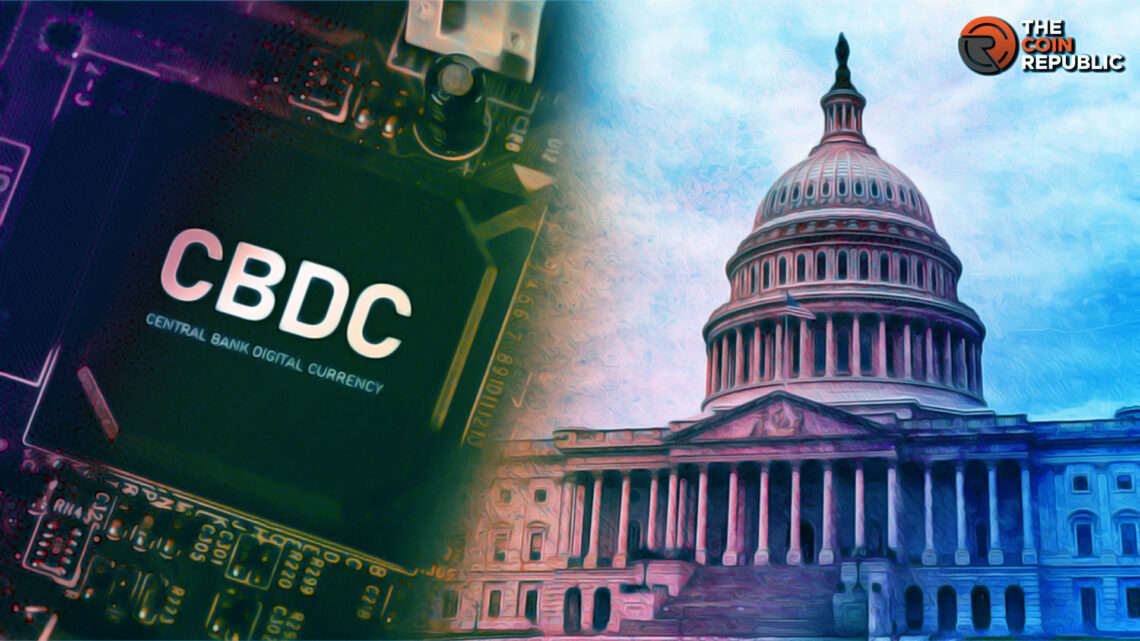- 1 Tom Emmer, the majority whip of the US House of Representatives, introduced the CBDC Anti-Surveillance Act lately.
- 2 The bill aims to prevent the unelected bureaucrats from using the digital currency for multiple reasons.
- 3 It sparked the debate about the financial dependence and government control over the American citizens.
There has been a lot of talk around CBDC since it was proposed. Some people thought it was good and some thought it compromised the technology. Technologically, it does change things a lot. It is because cryptocurrency isn’t governed by a single entity. A whole network of people run it together.
Why Have CBDC in the First Place?
The government clearly saw some merits in blockchain. They realized that it removed all the intermediaries making transactions cheaper and faster. The overall structure also made this mode of payment way safer. But the government or central banks can’t simply hand over the control to people. After all, it has its own hazards like terror funding, illegal activities, etc.
So, they came up with a median solution. Adopting the technology but giving up the power. CBDC allowed them to do it. They could use the blockchain to make the transactions and save all the money. At the same time, they wielded the same authority over the fiscal management of the country. However, that pissed the purists that believed that this form of cryptocurrency is nothing but a compromise. As a result, the world is seeing the CBDC anti-surveillance act.
What is the CBDC Anti-Surveillance Act?
The act questions CBDC’s commitment to privacy, individual sovereignty, and free-market competitiveness. The major whip of the US House of Representatives, Tom Emmer introduced it a few days ago. In a press release, he said that the bill prevents the unelected Washinton bureaucrats from issuing CBDC. Notably, the bill cleared the House Financial Services Committee and gathered great support.
On September 20th, the CBDC anti-surveillance act got approval and paved the way for a favorable congressional vote. Emmer stated that the bill has amassed support from 60 members of Congress already. His statement made to the committee underlined the risks of the government having authority over the digital currency. He also said it goes against American principles.
The bill also has some notable preventive provisions. It stops the Feds from distributing CBDCs to individuals and from using them in any monetary policy. Furthermore, Emmer termed digital assets as a sleeper issue in the US political landscape. He pointed out that it is impacting the people on both the Federal and state levels. As per his statement, the emerging trend also points out that the lawmakers lack knowledge of technology.
It is also causing a chasm between the people who don’t want governance and the state.
What Does it Mean for the World?
The act certainly brings attention to the debate on financial dependence and government control. Moreover, it works as a precedent in the future of digital asset evolution. However, it should be noted that CBDCs increase financial inclusion. They can provide easy access to banking services for marginalized communities. But it also intercepts innovation and restricts functionality.
Thus, maybe it’s best for everyone to discuss it even more. After all, everyone wants to embrace technology while avoiding the perils.

Nancy J. Allen is a crypto enthusiast, with a major in macroeconomics and minor in business statistics. She believes that cryptocurrencies inspire people to be their own banks, and step aside from traditional monetary exchange systems. She is also intrigued by blockchain technology and its functioning. She frequently researches, and posts content on the top altcoins, their theoretical working principles and technical price predictions.


 Home
Home News
News










